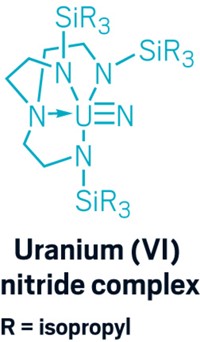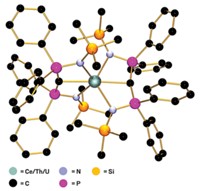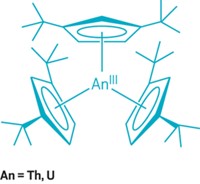Advertisement
Grab your lab coat. Let's get started
Welcome!
Welcome!
Create an account below to get 6 C&EN articles per month, receive newsletters and more - all free.
It seems this is your first time logging in online. Please enter the following information to continue.
As an ACS member you automatically get access to this site. All we need is few more details to create your reading experience.
Not you? Sign in with a different account.
Not you? Sign in with a different account.
ERROR 1
ERROR 1
ERROR 2
ERROR 2
ERROR 2
ERROR 2
ERROR 2
Password and Confirm password must match.
If you have an ACS member number, please enter it here so we can link this account to your membership. (optional)
ERROR 2
ACS values your privacy. By submitting your information, you are gaining access to C&EN and subscribing to our weekly newsletter. We use the information you provide to make your reading experience better, and we will never sell your data to third party members.
Physical Chemistry
Credit ligands for copper-complex chemistry
Spectroscopy and computational analysis reignites copper oxidation–state debate
by Sam Lemonick
November 17, 2019
| A version of this story appeared in
Volume 97, Issue 45
Copper complexes play important roles in catalysis and biological chemistry, which are often explained by the metal’s reduction from the formal oxidation state Cu(III) to Cu(I). But for decades, chemists have argued over whether those oxidation numbers really reflect the complexes’ electronic environments. Kyle M. Lancaster of Cornell University and colleagues have opened a new front in the so-called copper wars, using spectroscopy and density functional theory to show that the chemistry of more than a dozen formally Cu(III) complexes relies less on metal oxidation and reduction and more on the ligands’ electronic characteristics (J. Am. Chem. Soc. 2019, DOI: 10.1021/jacs.9b09016). Their analysis found that the molecular orbitals involved in the reactions mediated by these complexes take their character mostly from the ligands. Lancaster says these ligand contributions can help explain why Cu(phen)(CF3)3 is unreactive, but alkyl or imido copper complexes are reactive. He hopes that better understanding these complexes’ electronic structures will enable chemists to tune the species’ reactivity through ligand choice. Lancaster’s results are unlikely to be the last word in this debate, but his group is already moving on to nickel and cobalt species.





Join the conversation
Contact the reporter
Submit a Letter to the Editor for publication
Engage with us on Twitter